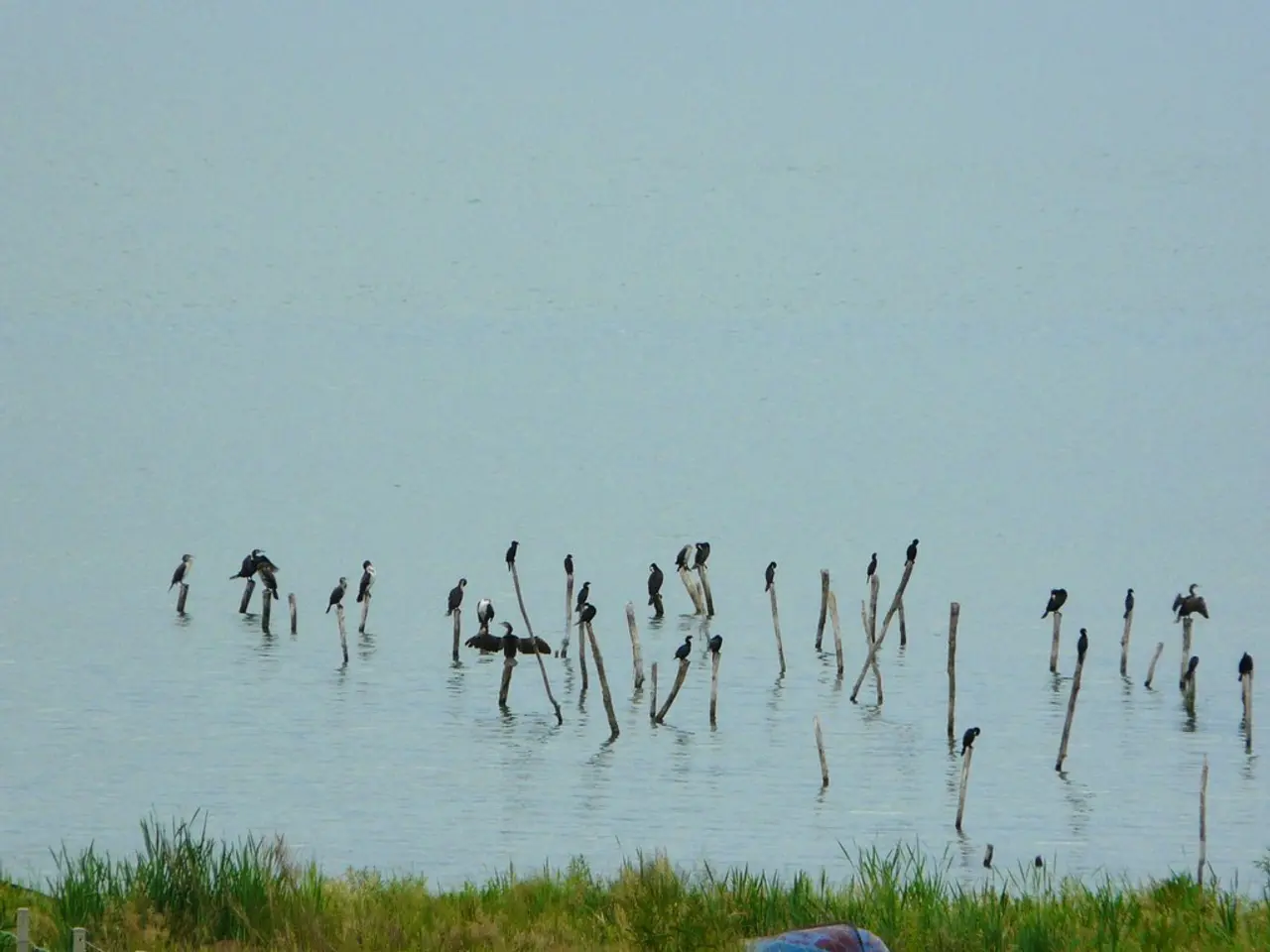Exploring the Mississippi River Delta: A Vital Refuge for Migratory Birds and Aquatic Creatures
The Mississippi River Delta, a unique and irreplaceable wonder, is at the heart of a fierce conservation effort. The question on everyone's lips is whether we can act in time to preserve this natural treasure for future generations.
Large-scale restoration projects are underway, aiming to reconnect the river with its wetlands, rebuild barrier islands, and plant new marsh grasses. These initiatives offer hope for reversing some of the damage inflicted on the delta.
One such initiative is the Sustainable Rivers Project (SRP), a partnership between The Nature Conservancy and the U.S. Army Corps of Engineers. This project seeks to manage river infrastructure, such as dams and control structures, to optimize water flows between the Mississippi and Atchafalaya Rivers, supporting ecological health alongside human needs.
Another key player is the Restore the Mississippi River Delta coalition, which includes organisations like the National Audubon Society and Environmental Defense Fund. They work on large-scale, science-based coastal restoration to protect wetlands that serve as buffers against storm surge and sea-level rise, and provide critical habitat for migratory birds and marine life. However, the cancellation of the Mid-Barataria Sediment Diversion project, a cornerstone of Louisiana's Coastal Master Plan, has set their efforts back significantly.
Education and stewardship programs, such as the NOAA-funded "Water Connects Us All", engage educators and communities across the Mississippi watershed to promote environmental literacy and stewardship, linking the ecological health of the delta to the entire watershed.
Despite these efforts, the delta faces significant challenges. Project cancellations and funding issues, such as the state's cancellation of the Mid-Barataria Sediment Diversion project, risk continued wetland loss, imperilling wildlife habitat and community protection from storms. Wetlands are also under threat from ongoing erosion, sea-level rise, and reduced sediment supply, as well as extreme weather events and changing land use patterns that affect habitat quality.
Local farmers and other stakeholders contend with barriers related to federal funding instability and market challenges, which impact sustainable land use and habitat-friendly farming practices in the delta region. Coordination and communication among stakeholders and agencies is also crucial to balance ecological and human needs.
The loss of the Mississippi River Delta would affect not just the birds, marine life, and people of the region, but also those around the world. The delta supports commercial and recreational fisheries, acting as a nursery for various fish species like shrimp, oysters, and countless others. Its cultures have been shaped by its wild and unpredictable beauty, influencing music, cuisine, and storytelling. The delta is home to rare and endangered species such as the Louisiana black bear, pallid sturgeon, and various orchids and carnivorous plants. Marshes and mangroves in the delta act as natural barriers against storm surges, reducing erosion and anchoring soil.
In conclusion, while multi-agency partnerships and restoration coalitions continue their efforts to sustain the Mississippi River Delta's diverse ecosystems and critical role for migratory birds and marine life, these efforts are hampered by recent project cancellations, funding uncertainties, and severe environmental stressors. Ongoing collaboration, funding support, and adaptive management remain essential to meet these challenges. The fate of countless birds, fish, and future generations hangs in the balance as passionate scientists, conservationists, and local communities fight to preserve the delta.
- The Mississippi River Delta, a natural treasure, is under a conservation effort to reconnect it with its wetlands, rebuild barrier islands, and plant new marsh grasses.
- One such initiative is the Sustainable Rivers Project, a partnership that aims to manage river infrastructure to optimize water flows and support ecological health.
- The Restore the Mississippi River Delta coalition, including organizations like the National Audubon Society and Environmental Defense Fund, work on large-scale coastal restoration to protect critical habitats for migratory birds and marine life.
- Education and stewardship programs, like the NOAA-funded "Water Connects Us All", promote environmental literacy and stewardship, linking the ecological health of the delta to the entire watershed.
- Wetlands face threats from ongoing erosion, sea-level rise, reduced sediment supply, extreme weather events, and changing land use patterns, putting wildlife habitat and community protection from storms at risk.
- Local farmers and stakeholders face barriers related to federal funding instability and market challenges, impacting sustainable land use and habitat-friendly farming practices in the delta region.
- The loss of the Mississippi River Delta would impact commercial and recreational fisheries, bird species, marine life, cultures, rare and endangered species like the Louisiana black bear, pallid sturgeon, and various orchids and carnivorous plants, and leave communities vulnerable to storm surges.




